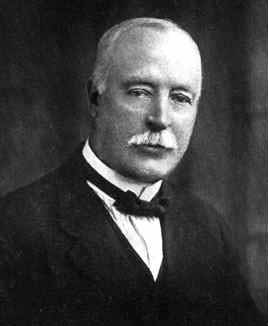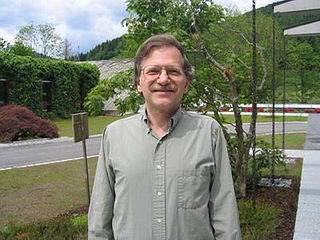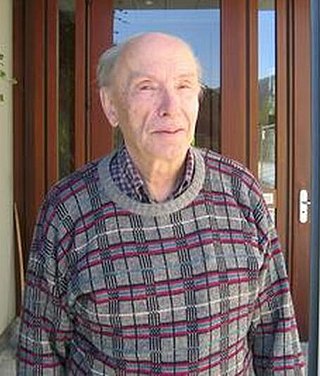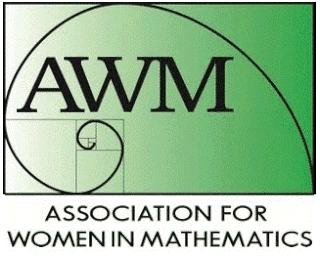Related Research Articles

John Torrence Tate Jr. was an American mathematician distinguished for many fundamental contributions in algebraic number theory, arithmetic geometry, and related areas in algebraic geometry. He was awarded the Abel Prize in 2010.
The Leroy P. Steele Prizes are awarded every year by the American Mathematical Society, for distinguished research work and writing in the field of mathematics. Since 1993, there has been a formal division into three categories.
Society for Industrial and Applied Mathematics (SIAM) is a professional society dedicated to applied mathematics, computational science, and data science through research, publications, and community. SIAM is the world's largest scientific society devoted to applied mathematics, and roughly two-thirds of its membership resides within the United States. Founded in 1951, the organization began holding annual national meetings in 1954, and now hosts conferences, publishes books and scholarly journals, and engages in advocacy in issues of interest to its membership. Members include engineers, scientists, and mathematicians, both those employed in academia and those working in industry. The society supports educational institutions promoting applied mathematics.

Frank Nelson Cole was an American mathematician.

David Harbater is an American mathematician at the University of Pennsylvania, well known for his work in Galois theory, algebraic geometry and arithmetic geometry.
The Morgan Prize is an annual award given to an undergraduate student in the US, Canada, or Mexico who demonstrates superior mathematics research. The $1,200 award, endowed by Mrs. Frank Morgan of Allentown, Pennsylvania, was founded in 1995. The award is made jointly by the American Mathematical Society, the Mathematical Association of America, and the Society for Industrial and Applied Mathematics. The Morgan Prize has been described as the highest honor given to an undergraduate in mathematics.

Peter Clive Sarnak is a South African-born mathematician with dual South-African and American nationalities. Sarnak has been a member of the permanent faculty of the School of Mathematics at the Institute for Advanced Study since 2007. He is also Eugene Higgins Professor of Mathematics at Princeton University since 2002, succeeding Sir Andrew Wiles, and is an editor of the Annals of Mathematics. He is known for his work in analytic number theory. He also sits on the Board of Adjudicators and the selection committee for the Mathematics award, given under the auspices of the Shaw Prize.

Ludvig Dmitrievich Faddeev was a Soviet and Russian mathematical physicist. He is known for the discovery of the Faddeev equations in the quantum-mechanical three-body problem and for the development of path-integral methods in the quantization of non-abelian gauge field theories, including the introduction of the Faddeev–Popov ghosts. He led the Leningrad School, in which he along with many of his students developed the quantum inverse scattering method for studying quantum integrable systems in one space and one time dimension. This work led to the invention of quantum groups by Drinfeld and Jimbo.
James Burton Ax was an American mathematician who made groundbreaking contributions in algebra and number theory using model theory. He shared, with Simon B. Kochen, the seventh Frank Nelson Cole Prize in Number Theory, which was awarded for a series of three joint papers on Diophantine problems.

Akshay Venkatesh is an Australian mathematician and a professor at the School of Mathematics at the Institute for Advanced Study. His research interests are in the fields of counting, equidistribution problems in automorphic forms and number theory, in particular representation theory, locally symmetric spaces, ergodic theory, and algebraic topology.

Wolfgang M. Schmidt is an Austrian mathematician working in the area of number theory. He studied mathematics at the University of Vienna, where he received his PhD, which was supervised by Edmund Hlawka, in 1955. Wolfgang Schmidt is a Professor Emeritus from the University of Colorado at Boulder and a member of the Austrian Academy of Sciences and the Polish Academy of Sciences.
Henryk Iwaniec is a Polish-American mathematician, and since 1987 a professor at Rutgers University. He is a member of the American Academy of Arts and Sciences and Polish Academy of Sciences. He has made important contributions to analytic and algebraic number theory as well as harmonic analysis. He is the recipient of Cole Prize (2002), Steele Prize (2011), and Shaw Prize (2015).

The Association for Women in Mathematics (AWM) is a professional society whose mission is to encourage women and girls to study and to have active careers in the mathematical sciences, and to promote equal opportunity for and the equal treatment of women and girls in the mathematical sciences. The AWM was founded in 1971 and incorporated in the state of Massachusetts. AWM has approximately 5200 members, including over 250 institutional members, such as colleges, universities, institutes, and mathematical societies. It offers numerous programs and workshops to mentor women and girls in the mathematical sciences. Much of AWM's work is supported through federal grants.
The Maryam Mirzakhani Prize in Mathematics is awarded by the U.S. National Academy of Sciences "for excellence of research in the mathematical sciences published within the past ten years." Named after the Iranian mathematician Maryam Mirzakhani, the prize has been awarded every four years since 1988.

Alan Stuart Edelman is an American mathematician and computer scientist. He is a professor of applied mathematics at the Massachusetts Institute of Technology (MIT) and a Principal Investigator at the MIT Computer Science and Artificial Intelligence Laboratory (CSAIL) where he leads a group in applied computing. In 2004, he founded a business called Interactive Supercomputing which was later acquired by Microsoft. Edelman is a fellow of American Mathematical Society (AMS), Society for Industrial and Applied Mathematics (SIAM), Institute of Electrical and Electronics Engineers (IEEE), and Association for Computing Machinery (ACM), for his contributions in numerical linear algebra, computational science, parallel computing, and random matrix theory. He is one of the creators of the technical programming language Julia.

The Princeton University Department of Mathematics is an academic department at Princeton University. Founded in 1760, the department has trained some of the world's most renowned and internationally recognized scholars of mathematics. Notable individuals affiliated with the department include John Nash, former faculty member and winner of the 1994 Nobel Memorial Prize in Economic Sciences; Alan Turing, who received his doctorate from the department; and Albert Einstein who frequently gave lectures at Princeton and had an office in the building. Fields Medalists associated with the department include Manjul Bhargava, Charles Fefferman, Gerd Faltings, Michael Freedman, Elon Lindenstrauss, Andrei Okounkov, Terence Tao, William Thurston, Akshay Venkatesh, and Edward Witten. Many other Princeton mathematicians are noteworthy, including Ralph Fox, Donald C. Spencer, John R. Stallings, Norman Steenrod, John Tate, John Tukey, Arthur Wightman, and Andrew Wiles.
The Hans Schneider Prize in Linear Algebra is awarded every three years by the International Linear Algebra Society. It recognizes research, contributions, and achievements at the highest level of linear algebra and was first awarded in 1993. It may be awarded for an outstanding scientific achievement or for lifetime contributions and may be awarded to more than one recipient. The award honors Hans Schneider, "one of the most influential mathematicians of the 20th Century in the field of linear algebra and matrix analysis.” The prize includes a plaque, certificate and/or a monetary award.
The AWM–Microsoft Research Prize in Algebra and Number Theory and is a prize given every other year by the Association for Women in Mathematics to an outstanding young female researcher in algebra or number theory. It was funded in 2012 by Microsoft Research and first issued in 2014.

The International Linear Algebra Society (ILAS) is a professional mathematical society organized to promote research and education in linear algebra, matrix theory and matrix computation. It serves the international community through conferences, publications, prizes and lectures. Membership in ILAS is open to all mathematicians and scientists interested in furthering its aims and participating in its activities.
References
- 1 2 Richardson, R. G. (1930), "The Society's Prizes", Bulletin of the American Mathematical Society, 36: 3–4, doi: 10.1090/S0002-9904-1930-04851-X .
- 1 2 Pitcher, Everett (1988), A history of the second fifty years, American Mathematical Society 1939-88, American Mathematical Society, pp. 51–54, ISBN 9780821896761 .